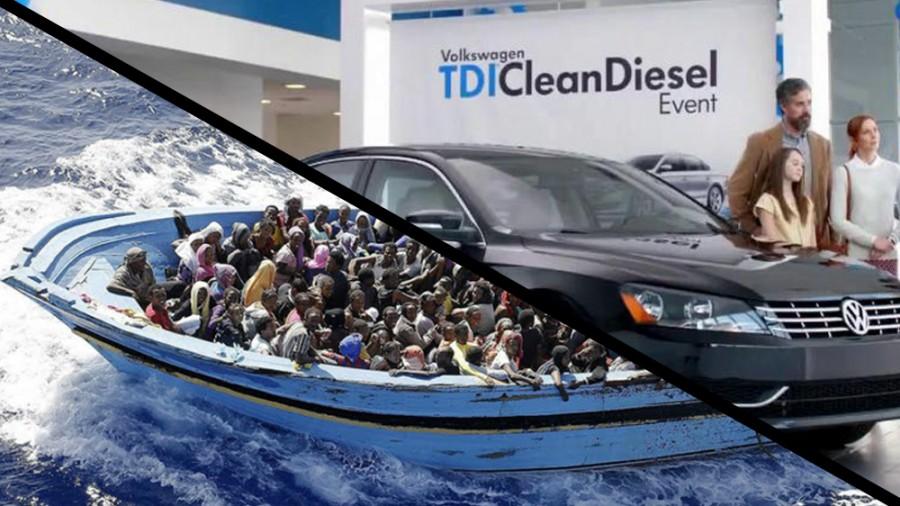‘Dieselgate’ and Europe’s Migrant Crisis Simplified
October 19, 2015
If you’ve been keeping up with the news recently you should have noticed the terrifying headlines about the mess the Volkswagen Group has made. The world’s largest car manufacturer for the first half of 2015 will be facing monumental consequences. A consumer’s natural instinct would be to boycott the company, considering the emotions of anger, distrust and disgust they would feel. However, due to the influx of immigrants from the Middle East, Europe is in a state of panic. A boycott against one of their largest employers, manufacturers, and source of capital could leave hundreds of thousands unemployed.
Proven that this scandal is no mere jest, you should be wondering, ‘Why is Volkswagen, a company built on reliability and eco-friendly marketing, in trouble?’ Volkswagen Group had been competing for years against Toyota and Ford for the title of the world’s largest automobile manufacturer. Volkswagen cheated on the standardized emissions test regulated by many countries, resulting in over 11 million cars contaminating the Earth. The cars’ exhaust systems were put into a test mode in which the exhaust system would dilute the pollutants; however this would cause the cars to use more fuel. Volkswagen, wanting to brand themselves as fuel efficient, built the system to turn off this function when not being tested, allowing them to show better fuel economy. The penalty of this cheat was a 29% stock market drop, and could cost the company upward of $7 billion fixing these cars and billions more in fines and support lawyers in lawsuits.
The consequences the Group have faced and will face are dramatic, and will affect Germany’s economy. The refugees coming from North Africa, the Middle East, and Western Balkans are fleeing their countries to seek religious tolerance and to escape civil war in Syria. This sudden potential unemployment in Germany could greatly affect Europe’s ability to absorb these migrants, as Germany is Europe’s largest economy. However, the migrant crisis could benefit the German labor force depending on how Angela Merkel, Germany’s chancellor, handles the crisis. Most migrants are applying for asylum, meaning they are asking the Eurozone to protect them from the Middle East while starting a life in Europe. The Eurozone would then have to supply capital to these refugees. The question is, ‘Can Germany, one of Europe’s most influential countries, afford the migrant crisis?’
So far, Germany has been leading with migrant acceptance rates in Europe, expecting to accept more than 800,000 migrants in 2015. Volkswagen has not laid off any of its workers yet, but a boycott will most definitely force them to. Obviously these components may combine into massive unemployment rates for Germany. Right now, the fate of Germany, and Europe itself, lies with Angela Merkel.





